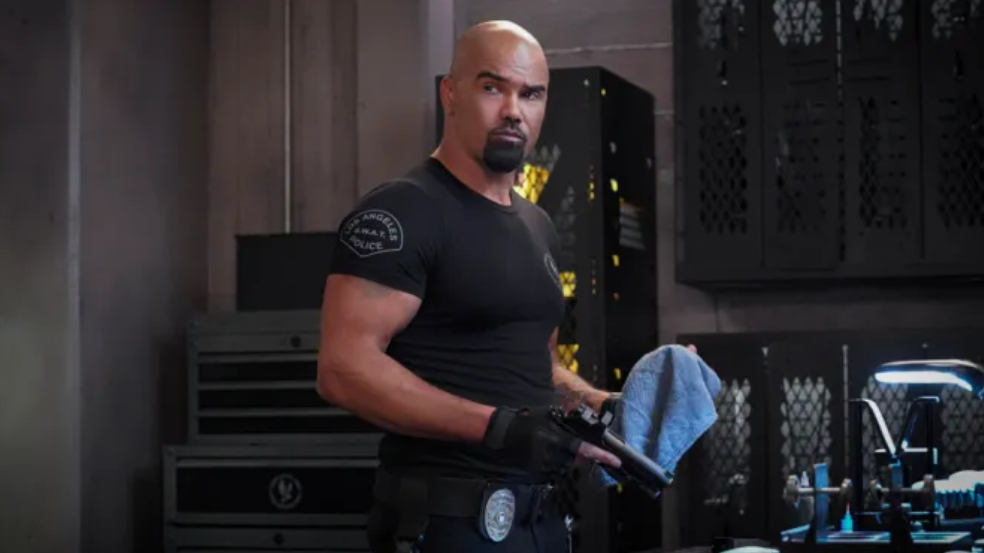The landscape of television production is constantly evolving, marked by strategic maneuvers and rapid transformations. Few recent developments encapsulate this dynamic more perfectly than the swift conception and greenlight of “S.W.A.T. Exiles,” a direct spinoff of the popular CBS action-drama “S.W.A.T.” This new 10-episode series, starring Shemar Moore as the iconic Sergeant Daniel “Hondo” Harrelson, emerged with unprecedented speed, sparking both excitement and controversy within the industry and among its devoted fanbase.
For eight seasons, “S.W.A.T.” captivated audiences with its high-octane action, compelling character arcs, and timely social commentary. Led by Moore’s charismatic Hondo, the series garnered a loyal following, particularly noted for its strong international sales, which significantly contributed to its profitability for Sony Pictures Television. Despite its consistent performance and dedicated viewership, the show faced a surprising cancellation by CBS, a decision that sent shockwaves through its cast, crew, and dedicated fan base. However, the “S.W.A.T.” universe was declared “dead for less than 48 hours” before news of the “Exiles” spinoff, championed by Sony TV, quickly surfaced. This immediate resurrection not only offered a lifeline to the show’s 200-person Los Angeles-based crew but also underscored the immense value Sony placed on the franchise, especially its international appeal.
The genesis of “Exiles” was nothing short of a “mad dash.” The idea of a “S.W.A.T.” offshoot had been casually discussed for years by co-creator Shawn Ryan, but it was only after the original series’ abrupt cancellation that the concept was fast-tracked into an actionable plan. The urgency was palpable, driven by the desire to capitalize on the show’s established infrastructure and retain key talent like Moore. Crucially, the timing coincided with the annual LA Screenings, a pivotal event where studios present their new content to international and domestic buyers. Presenting a new “S.W.A.T.” iteration, even in its nascent stages, provided a powerful selling point to eager global markets that had consistently embraced the original series.

The speed of development for “Exiles” set a new precedent. Within a mere two weeks, from the initial pitch to a series greenlight, the project moved from concept to production readiness. Jason Ning, known for his work on “Lucifer,” was swiftly brought on board as showrunner, quickly formulating his vision for the new series. This rapid turnaround effectively circumvented the traditional, often lengthy, development process, allowing Sony TV to secure the talent and soundstages necessary to commence filming in Los Angeles this summer. The strategic decision aimed to maintain continuity, keep the existing crew employed, and leverage the established production resources that had served the original series so well.
However, this breakneck pace came with its own set of challenges, particularly regarding communication and cast relations. While the industry largely lauded Sony TV for its quick action, the handling of the announcement left some key figures feeling blindsided. According to various reports, neither CBS, the long-standing network home of “S.W.A.T.,” nor the majority of the original series’ cast members and writers were given prior notice of the spinoff. They learned of “Exiles” only when the official announcement was made. This lack of communication, described by some talent representatives as “inappropriate” and a “slight,” led to understandable frustration among those who had dedicated years to the “S.W.A.T.” universe. Sony TV executives reportedly later apologized for the oversight, attributing it to the extreme rush to get the project off the ground.
At the heart of “Exiles” lies Shemar Moore’s character, Hondo, the sole original cast member confirmed for the spinoff. The premise centers on Hondo leading “a last-chance experimental SWAT unit made up of untested, unpredictable young recruits.” This narrative choice, while offering a fresh dynamic, was also a strategic move by Sony TV to manage talent costs by surrounding their established star with emerging actors. This decision, however, ignited a passionate debate among fans. Many voiced disappointment and criticism over the absence of other beloved “original gangster” (OG) characters, most notably Jay Harrington’s popular Deacon Kay. The bond between Hondo and Deacon, and indeed the entire original S.W.A.T. team, was a cornerstone of the show’s appeal, and fans expressed concern that the spinoff would lose its emotional core without them.

Shemar Moore, ever the public face of the franchise, addressed these concerns in a lengthy Instagram video. Using a football metaphor, he emphatically declared himself the “quarterback” of “S.W.A.T.,” acknowledging the vital contributions of his former castmates whom he referred to as his “strong squad, a family, a team.” He expressed his love and respect for them, while also explaining the harsh realities of the industry: “Tight ends get traded. The running back gets traded, the receivers get traded but the teams keep pushing with their quarterback and I’m that guy.” Moore’s candid message, while assertive about his central role, also sought to express loyalty to his former colleagues and the fan base, recognizing their pivotal role in keeping the original series alive through multiple cancellation scares. Sources close to the actor emphasized his consistent advocacy for the show and its crew throughout its run, highlighting his genuine commitment to the “S.W.A.T.” legacy.
The new series is still in its very early creative stages, and while there are no current plans to feature other “S.W.A.T.” cast members regularly, the door remains open for potential guest appearances. This possibility offers a glimmer of hope for fans eager to see familiar faces reunite with Hondo, even if fleetingly. The success of “Exiles” will hinge not only on Hondo’s continued appeal and the fresh dynamic of his new team but also on how effectively it addresses fan expectations while forging its own identity. Sony TV’s gamble on a rapidly developed, Moore-centric spinoff reflects a growing trend in the entertainment industry to maximize existing IP and respond quickly to market demands. The future of the “S.W.A.T.” universe now rests on Hondo’s shoulders, leading a new generation of officers into uncharted territory, with the world watching to see if this swift rebirth can truly be “bigger, bolder, S.W.A.T. on steroids.”





